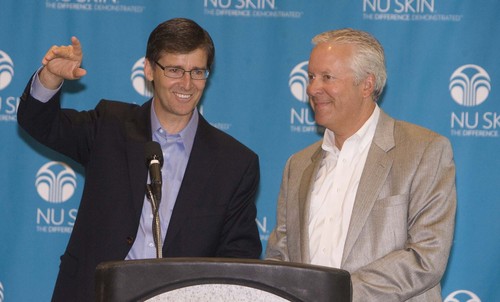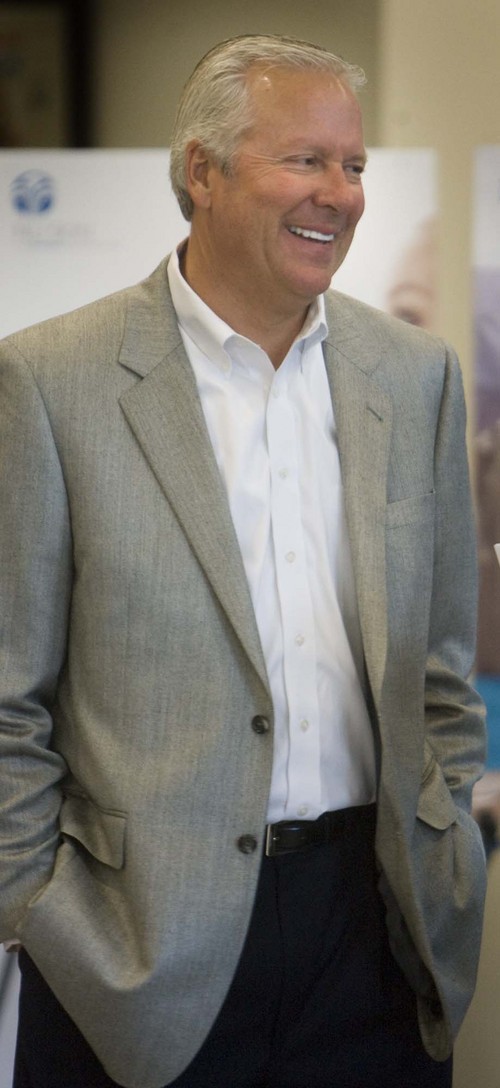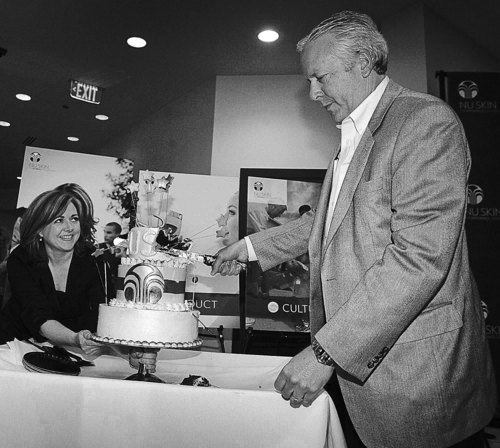This is an archived article that was published on sltrib.com in 2014, and information in the article may be outdated. It is provided only for personal research purposes and may not be reprinted.
Nu Skin Enterprises shares plunged Thursday afternoon after the Provo company reported that Chinese regulators had begun an investigation into its operations in that country and its revenue would likely be affected.
Nu Skin's shares on the Nasdaq exchange were down about 41 percent at one point after it issued a news release acknowledging the investigation. Trading of the company's shares on the Nasdaq exchange had been halted for a time in anticipation of the announcement, according to news reports.
Nu Skin's share price fell 26.4 percent on Wednesday after the People's Daily newspaper reported that the company's operation in China appeared to be a pyramid scheme. The report also suggested Nu Skin's cadre of independent distributors had been brainwashed.
On Thursday, the Chinese government's State Administration for Industry and Commerce said it was treating the allegations seriously and had asked for an investigation.
The company issued a statement acknowledging the investigation.
"The government regularly monitors all businesses in this rapidly growing marketplace, and as is our practice, we will continue to communicate openly with regulators to address any questions they may have," the statement said.
The company — which sells anti-aging, personal care and nutritional products — also said it was initiating its own review and would seek guidance from regulators as well as take steps to reinforce training and education of its distributors.
Nu Skin has operated in China for about 11 years and received 20 percent of its total revenue from China and Hong Kong and, the company said, those revenues will likely be affected by the investigation. For its third quarter that ended Sept. 30, Nu Skin reported a 407 percent increase in revenues from mainland China, which excludes Hong Kong. The $345.7 million in mainland China was 37 percent of the total revenue the company reported.
Mainland China is now, by far, the company's biggest market.
Nu Skin is supposed to use both a retail and direct-to-consumer sales business model in China, as opposed to the multilevel marketing plan it operates under in the United States and other countries.
But in 2012, Citron Research, a California short seller, said its investigation showed Nu Skin was operating in China as an illegal multilevel marketer in which independent distributors earn commissions through recruiting new distributors into their networks.
Critics in the United States also liken that model to a pyramid scheme in which there is a constant recruitment of distributors to whom the company sells its products and who provide its revenue, while profits accumulate only at the highest levels of the network.
Shares of USANA Health Sciences, another Utah MLM with operations in China, were down about 10 percent Thursday. Herbalife, a California MLM that also does business in China, also was suffering a drop of about 10 percent.
Twitter: @TomHarveySltrib







